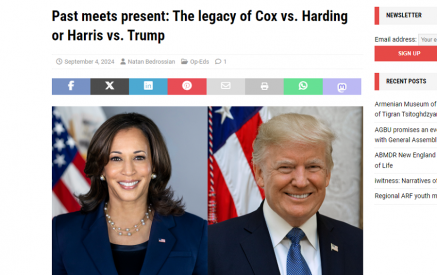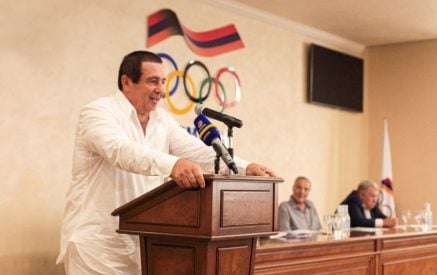In modern public discourse (also Armenian) it is customary to quote Lord Dalberg-Acton as saying that absolute power is absolutely corrupted. Theoretically, of course, it is true, but if we are talking about a country like Armenia, then that formula is not applicable, because in the case of our type of authoritarianism, there is no power at all.
Times have changed. As one Russian political scientist joked, in the 20th century such regimes were 80 percent based on repression, 20 percent on propaganda, and now, in the 21st century, the opposite is true: 80 percent propaganda, 20 percent repression. Of course, if you are in that 20% (say, you are the mayor of Goris or the former mayor of Vanadzor), if you are a member of the families of those imprisoned for political revenge, you will not be comforted by the fact that there is a diference between Armenia and, say, Azerbaijan or Belarus and, by the way, there always has been. However, the comparisons with the number 37 are greatly exaggerated.
In our age, power is corrupted not by being absolute, but by isolation, appearing in the information bubble, “liking,” being surrounded by flatterers and glorifiers. But the problem is that this disease corrupts not only the government, but to a greater or lesser extent all of us. See how many small groups our society is divided into. First, they are separate groups of fans of the 4 leaders of Armenia. Then there are anti-Russian and pro-Russian, liberal and nationalist, “not one inch of land” and “compromise,” “anti-former” and “anti-current” sects, as well as “pro-Tsarukyan,” “pro-Samvel Babayan” and even “pro-Woodrow Wilson.” I could go on and on with a few more pages to get to the anti-vaccination movement.
But the principle is simple. People are divided into several hundred formal and informal groups through social networks whose members are able to perceive only the views expressed within the group and angrily reject any opinion expressed outside the group. In cognitive psychology, this is called the “echo-camera effect” when the person inside the camera can only hear the echo of their own voice. When it is said that the current government lives by the “principles of Facebook,” I think it refers to this feature.
Read also
In this fragmented, atomized society, when there is no common ground, we can not set aside our personal and political preferences not only in our negotiations with Turkey on our envoy, but we also can not fully rejoice in the victory of the Armenian child in the Junior Eurovision Song Contest.
Aram Abrahamyan






















































